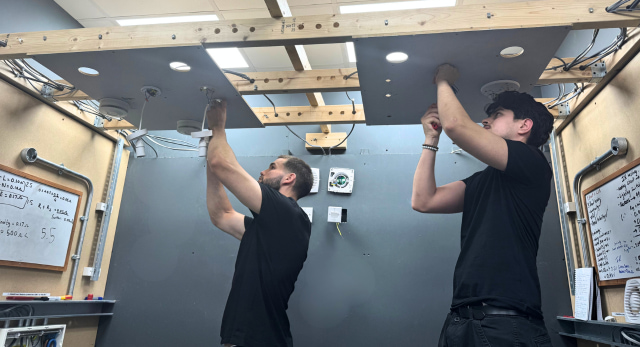With 31st January behind us – statistically the most popular day for employees to quit their job – we look at how small businesses can retain their staff, why it’s important and the role that ongoing training plays in this process.
How does staff retention benefit business?
Staff retention is a vital ingredient for long-term business success.
Prioritising staff retention means creating a culture where staff feel valued, trusted and connected to the overall success of the business.
As well as being less likely to jump ship, employees who feel valued by their employer benefit business in other ways:
- They’re less stressed and therefore less likely to take time off (work-related stress is one of the most reported workplace health issues in the construction sector)
- They have strong working relationships with their colleagues
- They’re less likely to make mistakes
- They go the extra mile to promote the business
- They’re more productive, motivated and loyal.
What role does ongoing training play?
Career progression and professional development are essential for job satisfaction.
Companies who provide opportunities for staff to train, upskill and move up the career ladder are therefore much more likely to retain their staff.
However, creating a loyal and productive workforce is just one benefit of investing in upskilling, others include:
- Fill skills gaps in your business and the wider sector
- Train within the ethos of your business
- Pay can be scaled as expertise grows
- Widen your customer base
- Tap into new markets
- ‘Future-proof’ your services
- Evolve alongside industry developments.
What are the options for building services businesses that want to invest in training?
The building services engineering sector has a strong history with upskilling.
Many installers end their career on an entirely different trajectory to where they started, with initial training often acting as a gateway into other areas.
To this end, there are plenty of training options designed for operatives with transferable skills and related experience, creating a flexible and multi-skilled workforce that’s ready to face the challenges of the future.
Domestic Gas Heating Installer – Experienced Trades, MLP Package – route to ACS for operatives with experience in a related trade, for example plumbers, who are working under the supervision of a Gas Safe Registered company.
Domestic electrical installer course – for installers who carry out domestic electrical tasks in a secondary capacity, such as gas engineers, heating installers, kitchen and bathroom fitters and plumbers.
Commercial Heating Gas Safety Upskill Package – for domestic heating installers looking for a new challenge
Installation and Maintenance of Heat Pump Systems – expand your business offering and train up for the future
Energy Efficiency for Domestic Heating Certificate – swat up on Part L Building Regulations.
Online health and safety courses – improve workplace safety
Do you have a specific skills gap that needs filling?
We can provide bespoke training tailored to company needs.









